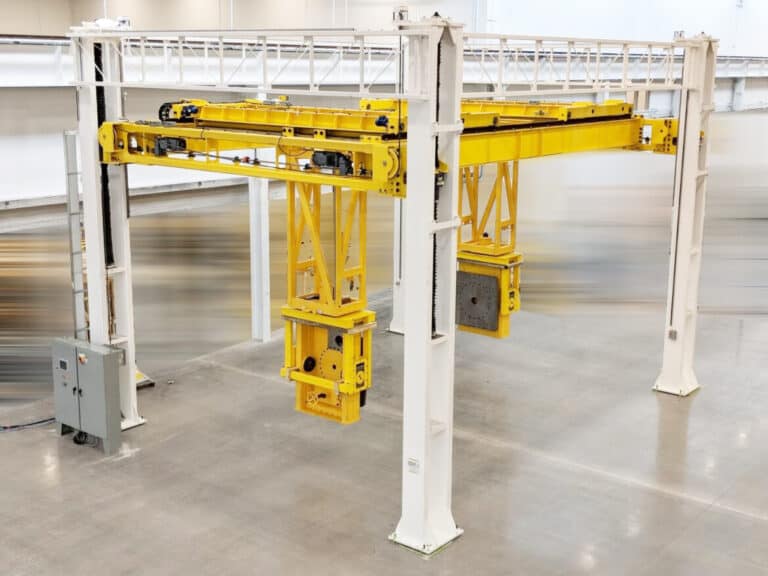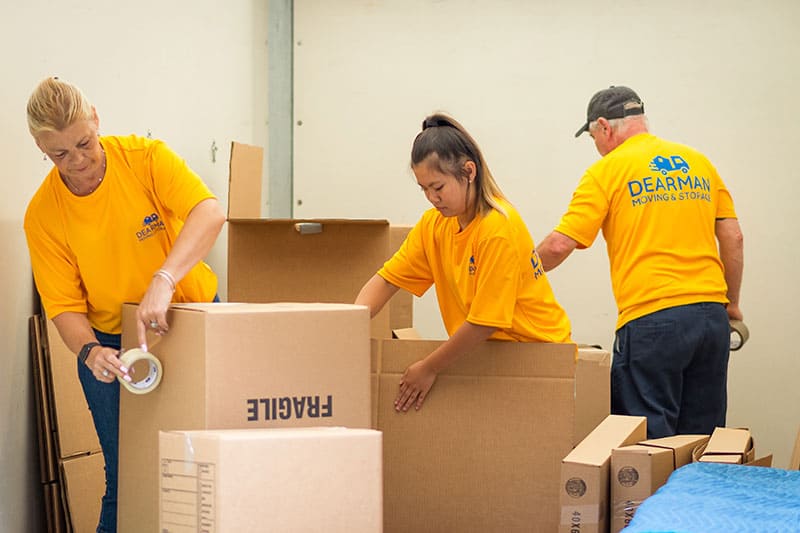Understanding the Inclusions of moving and Freight Forwarding in the World of Worldwide and residential Delivery
Guiding via the complexities of moving and Freight forwarding can be difficult. Both procedures entail distinctive treatments and needs that are crucial for successful transport. Comprehending the distinctions in logistics, documents, and risk administration is vital for people and businesses alike. This knowledge can significantly affect the performance and safety of shipments. Numerous are uninformed of the certain parts that affect the overall experience and end results. What variables should one take into consideration to guarantee a smooth changeover?
The Basics of moving and Freight Forwarding
moving and Freight forwarding are basic components of the worldwide logistics industry. They promote the transfer of goods and individual belongings across domestic and worldwide boundaries. moving primarily includes the moving of individuals or family members, incorporating domestic and business demands. It normally consists of packing, packing, transporting, and unloading things at the location. In comparison, Freight forwarding is focused on the shipment of products, usually in bulk, using various transportation modes, such as air, sea, or land.Freight forwarders serve as middlemans, coordinating logistics to ensure prompt delivery while navigating through complex guidelines and personalizeds procedures. Both processes need careful planning, organization, and communication to guarantee performance and decrease interruptions. Recognizing these fundamentals is important for anyone involved in logistics, as they prepared for even more innovative elements of shipping and transportation management.
Key Elements of Freight Forwarding Services
Freight forwarding solutions encompass numerous critical components that ensure smooth transport of products. Key duties of Freight forwarders consist of managing logistics, coordinating deliveries, and handling custom-mades clearance. In addition, recognizing essential shipping documents is vital for compliance and effective activity of cargo.
Freight Forwarder Responsibilities
A trustworthy Freight forwarder plays a necessary duty in coordinating the transportation of goods, making certain that shipments are taken care of efficiently and in conformity with regulations. Their responsibilities encompass different essential tasks, including selecting ideal transportation courses, discussing Freight prices, and managing logistics. They function as middlemans in between service providers and shippers, guaranteeing that cargo is correctly packaged and labeled for safe transit. Additionally, Freight forwarders track shipments, offering updates to customers about the standing and expected distribution times. They also examine and handle dangers related to transportation, suggesting insurance policy options as required. By promoting communication and documentation, Freight forwarders simplify the shipping process, lowering potential hold-ups and boosting overall supply chain effectiveness.
Shipping Documents Essentials

Understanding Customs Clearance and Documents
Exact documentation is essential in the customs clearance process, as it guarantees conformity with different regulations. A review of custom-mades guidelines highlights the intricacies encountered by shippers and Freight forwarders. Common clearance difficulties can substantially affect delivery timelines and costs, making understanding this aspect necessary for effective logistics.
Relevance of Accurate Documentation
Steering via the intricacies of international shipping requires an eager understanding of customizeds clearance and the essential duty of documentation. Exact documentation is crucial for making certain that shipments adhere to laws and reach their locations immediately. Properly prepared records, including costs of lading, business invoices, and packing listings, promote smooth communications with customs authorities. Errors can result in shipment hold-ups, fines, or perhaps confiscation of goods. Complete paperwork aids in tracking deliveries and dealing with disputes. Services involved in moving and Freight forwarding must focus on thorough documentation methods to browse the detailed landscape of global delivery successfully. This persistance not just streamlines operations yet also enhances consumer contentment by ensuring timely distribution.
Customizeds Rules Review
Guiding personalizeds regulations is an important aspect of international profession that directly affects the success of moving and Freight forwarding procedures. Reliable customs clearance calls for an understanding of numerous regulations, including tolls, responsibilities, and import/export constraints. Exact paperwork is crucial, as it ensures conformity with legal needs and assists in the reliable motion of goods across boundaries. Trick documents usually include business billings, packing lists, and expenses of lading, which supply comprehensive details concerning the delivery. Furthermore, custom-mades brokers play an important duty in guiding intricate laws, acting as intermediaries in between shippers and customs authorities. By preserving comprehensive expertise of customs procedures, services can considerably decrease delays and decrease prices connected that site with international delivery.
Common Clearance Difficulties
Many obstacles can emerge throughout the customs clearance process, usually complicating the activity of products across boundaries. One substantial problem is not enough documents, which can cause hold-ups and charges. Importers and merchants must assure all required paperwork, such as billings, packing lists, and certifications of origin, is full and precise. Furthermore, disparities in appraisal can set off examination from customizeds authorities, resulting in added tasks or assessments. Language barriers might likewise posture difficulties, as miscommunication can lead to misunderstandings concerning regulations. In addition, adjustments in customs laws can produce complication, necessitating consistent caution by carriers. Eventually, getting over these clearance tests requires detailed preparation and a clear understanding of customizeds needs to facilitate smooth worldwide purchases.
Packaging and Classifying Needs
Usually neglected, packaging and labeling needs play a vital function in the delivery procedure, making certain that products are protected and easily identifiable throughout their trip (lcl shipping). Correct product packaging safeguards products from damage during transportation, while also facilitating reliable handling and storage. Using ideal products, such as bubble wrap, foam, or tough boxes, can prevent breakage and loss.Labeling is just as critical. Clear and exact tags communicate crucial info, including the location, handling directions, and components. Labels have to follow policies particular to domestic and international delivery, which may consist of hazardous products identification or personalizeds declarations.Moreover, standardized labeling practices streamline the monitoring process and improve general logistics efficiency. By sticking to product packaging and labeling requirements, services minimize the danger of delays, damages, or misdelivery. Inevitably, these techniques add considerably to the success of moving and Freight forwarding procedures, making certain a smooth shipping experience for all celebrations involved
Tracking Shipments: Relevance and Methods
Efficient packaging and labeling set the foundation for successful shipment management, but tracking deliveries is similarly important in the delivery process. Shipment tracking supplies real-time visibility, which aids customers and organizations keep track of the development of their items. This openness enhances client complete satisfaction, considering that clients can stay notified about delivery timelines and any type of prospective delays.Several techniques help with efficient tracking. Barcode scanning is a typical strategy, utilizing special identifiers to check packages throughout their journey. In addition, GPS technology allows accurate location monitoring, permitting prompt updates and improved logistics management. Many shipping companies currently use electronic systems and mobile applications that supply customers with easy access to tracking information.The value of shipment monitoring can not be overstated; it lessens the threat of shed or harmed goods, improves operational efficiency, and promotes depend on between shippers and recipients. Therefore, incorporating reliable tracking techniques is important for successful domestic and global delivery operations.
Insurance policy Options for Your Item

Safeguarding insurance for products en route is a vital consideration for organizations and people alike. Insurance policy choices differ based upon the sort of shipment, value of goods, and details risks included. Common types include copyright responsibility, which covers loss or damages while in transit, and full-value insurance, offering comprehensive coverage for the total value of the goods.Shippers may additionally take into consideration marine insurance coverage for worldwide shipments, protecting against threats connected with sea transport. It is vital to assess the particular needs of the shipment and evaluate the conditions of any policy.Furthermore, recognizing exclusions and restrictions is crucial to prevent potential spaces in coverage. Carriers ought to engage with insurance specialists to explore tailored solutions that fit their distinct circumstances. Ultimately, buying the right insurance coverage can minimize economic threats and offer tranquility of mind during the delivery process.
Choosing the Right moving and Freight Forwarding Service
When choosing a moving and Freight forwarding solution, it is important for companies and individuals to meticulously evaluate their particular demands and top priorities. Factors such as the quantity of items, location, and timeline play a try this website significant role in this decision-making procedure. Investigating different providers is recommended; contrasting their services, prices, and consumer reviews can disclose useful insights.Additionally, it is necessary to take into consideration the experience and expertise of the service supplier in handling specific sorts of cargo, especially for international deliveries that may entail personalizeds clearance. Openness in prices, consisting of any type of covert fees, should additionally be scrutinized.Furthermore, reviewing the degree of client support offered is important, as timely interaction can alleviate concerns throughout transit (shipping freight). Finally, verifying the schedule of insurance coverage options assures that products are protected throughout the shipping procedure. By taking these people, actions and businesses can make enlightened options that align with their logistics demands
Frequently Asked Concerns
What Kinds Of Product Can Be Shipped Worldwide?

How Do Shipping Prices Range Various Service Providers?
Delivering expenses differ substantially between carriers because of factors such as service rate, freight type, range, and added services offered. Each service provider's prices model mirrors these variables, affecting total delivery expenses for consumers.
Can I Ship Hazardous Materials or Perishables?
Shipping dangerous materials and perishables goes through stringent guidelines. Providers usually call for specific product packaging, labeling, and paperwork. Shippers have to assure conformity with global and local regulations to avoid fines and ensure risk-free transportation.
What Should I Do if My Shipment Is Delayed?
When confronted with a shipment delay, one should initially get in touch with the service provider for updates. Then, assess any notifications received, examine alternative remedies, and maintain all parties notified regarding the situation to reduce disruptions.
Are There Weight Boundary for Delivery Containers?
Weight limits for shipping containers vary depending upon variables like container size and delivery guidelines. Generally, standard containers have an optimum gross weight of around 30,000 to 32,000 kilograms to ensure secure transportation and handling. In comparison, Freight forwarding is focused on the delivery of items, usually in bulk, utilizing numerous transportation settings, such as land.freight, air, or sea forwarders act as middlemans, coordinating logistics to assure prompt delivery while maneuvering through complex regulations and custom-mades treatments. Secret responsibilities of Freight forwarders include taking care of logistics, working with shipments, and managing personalizeds clearance. A trustworthy Freight forwarder plays an important function in coordinating the transportation of items, making certain that shipments are managed successfully and in conformity with laws. Efficient packaging and labeling established the foundation for successful delivery monitoring, yet tracking shipments is equally crucial in the shipping process. Several delivery business now provide electronic systems and mobile applications that offer users with simple access to tracking information.The importance of delivery tracking can not be overstated; it lessens the danger of lost or harmed products, enhances functional effectiveness, and fosters depend on between recipients and shippers.
Comments on “Why domestic logistics plays a role in global supply chains”